A Tunisian family torn apart by Isis as terror stalks the once peaceful country
Tunisia is a moderate Muslim country and the only one to emerge as a democracy from the Arab Spring. But as Isis loses ground in Syria and Iraq and thousands of fighters look to return, the country stands on the brink – as one family’s tragic story shows
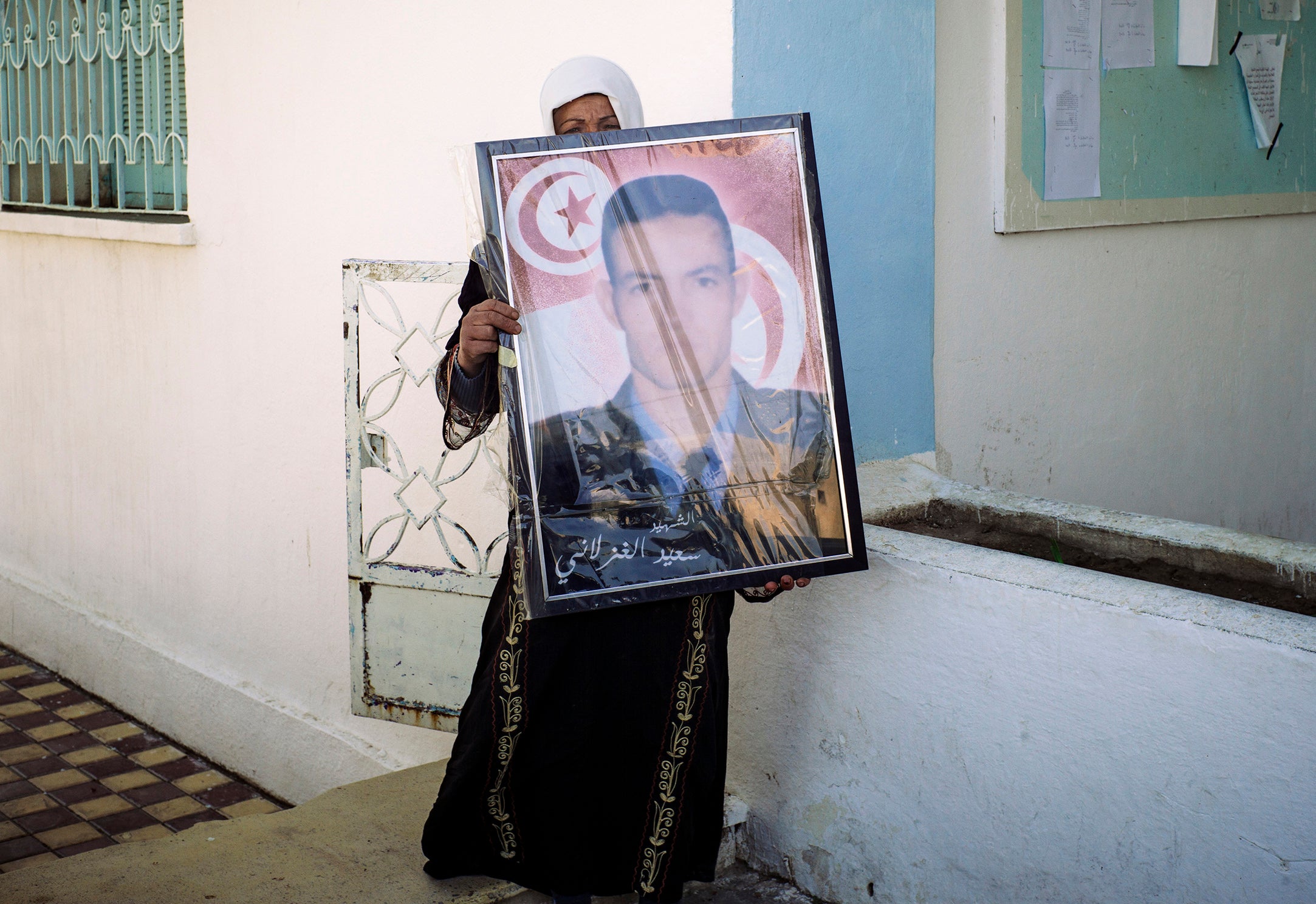
One evening last autumn, the Isis fighters came down from the mountains. Sayed Ghozlani was visiting his family during a break from the army, and the fighters wanted to find him. They stormed his house during dinner and corralled the men. They beat them up, tied their hands behind their backs and forced them all to kneel. Then one fighter pressed a gun against Ghozlani's head and demanded his name.
"Abdul Malik,” he replied.
"That's not the truth,” another militant said in a voice that was familiar, according to two witnesses.
His face bloodied, Ghozlani looked up to see a figure carrying an AK-47 rifle and smiling triumphantly.
It was his cousin Muntasir.
In the mountains of western Tunisia, radical Islamists are spreading their ideology, cowing villagers with brute violence and dividing families. American-trained Tunisian soldiers are battling them, but the militants are formidable opponents.
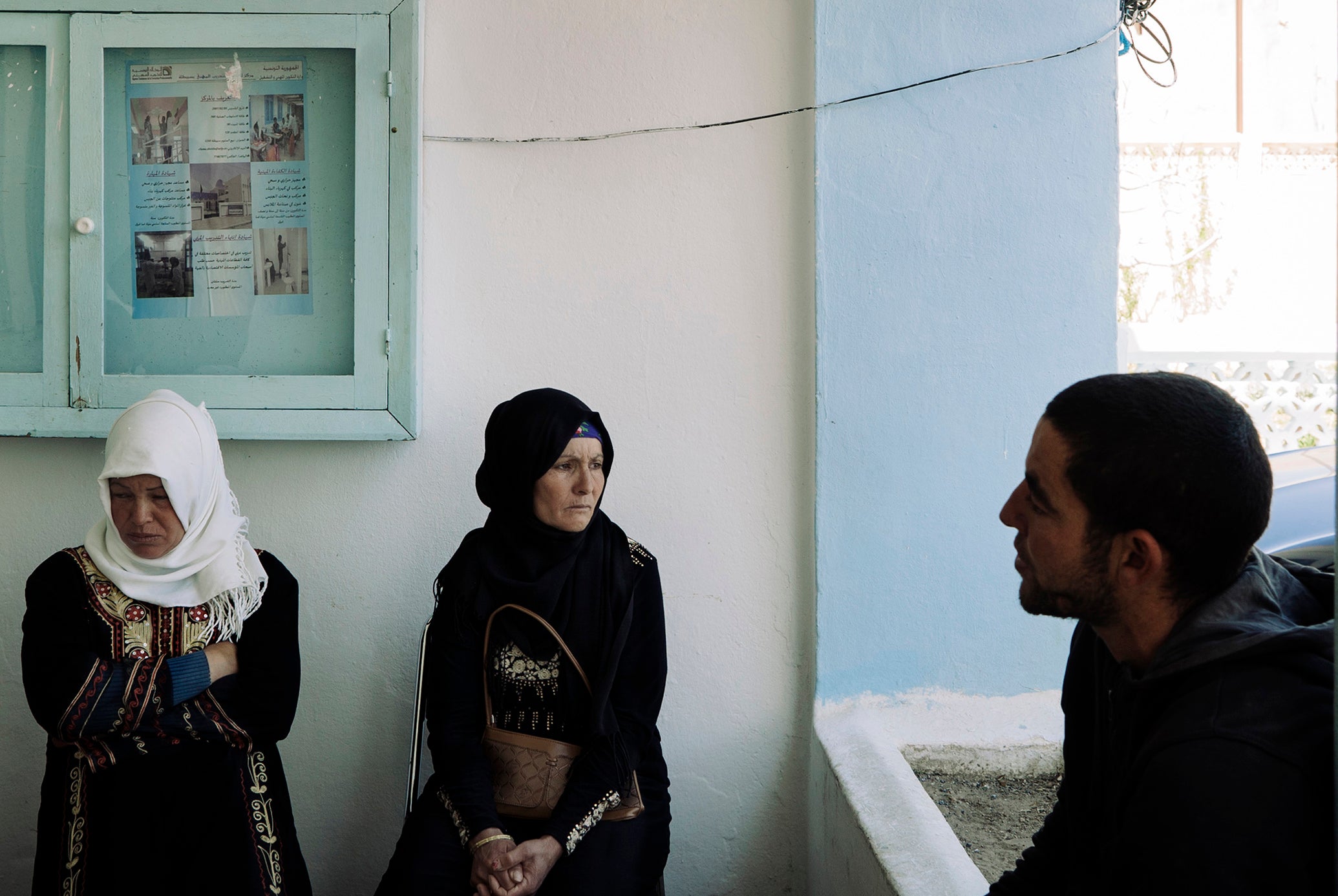
The struggle lays bare Isis's aspirations as it loses territory in Iraq and Syria, security officials and analysts say. The militants are searching for new safe havens and areas to control, as well as sow chaos. They are also fortifying existing footholds to expand their reach and fallback options.
In Egypt, Isis militants are staging devastating attacks on minority Christians. In Algeria and the Sahel region, new Isis affiliates have emerged. And after losing its Libyan stronghold of Sirte in December, Isis is trying to regroup in southern Libya, and potentially in Tunisia and other neighbouring countries, US military and intelligence officials say.
"The instability in Libya and North Africa may be the most significant near-term threat to America and its allies' interests on the continent,” General Thomas Waldhauser, head of the Pentagon's Africa Command, told the Senate Armed Services Committee last month.
The return of possibly thousands of fighters threatens to further destabilise Tunisia, a moderate Muslim nation and the only one to emerge as a functioning democracy after the 2011 Arab Spring uprisings.
Less than 15 miles from the Algerian border, the mountains have become a crossroads for militants from the region. Caves and bushes provide plenty of cover for training camps and redoubts in an area that is partly ungoverned.
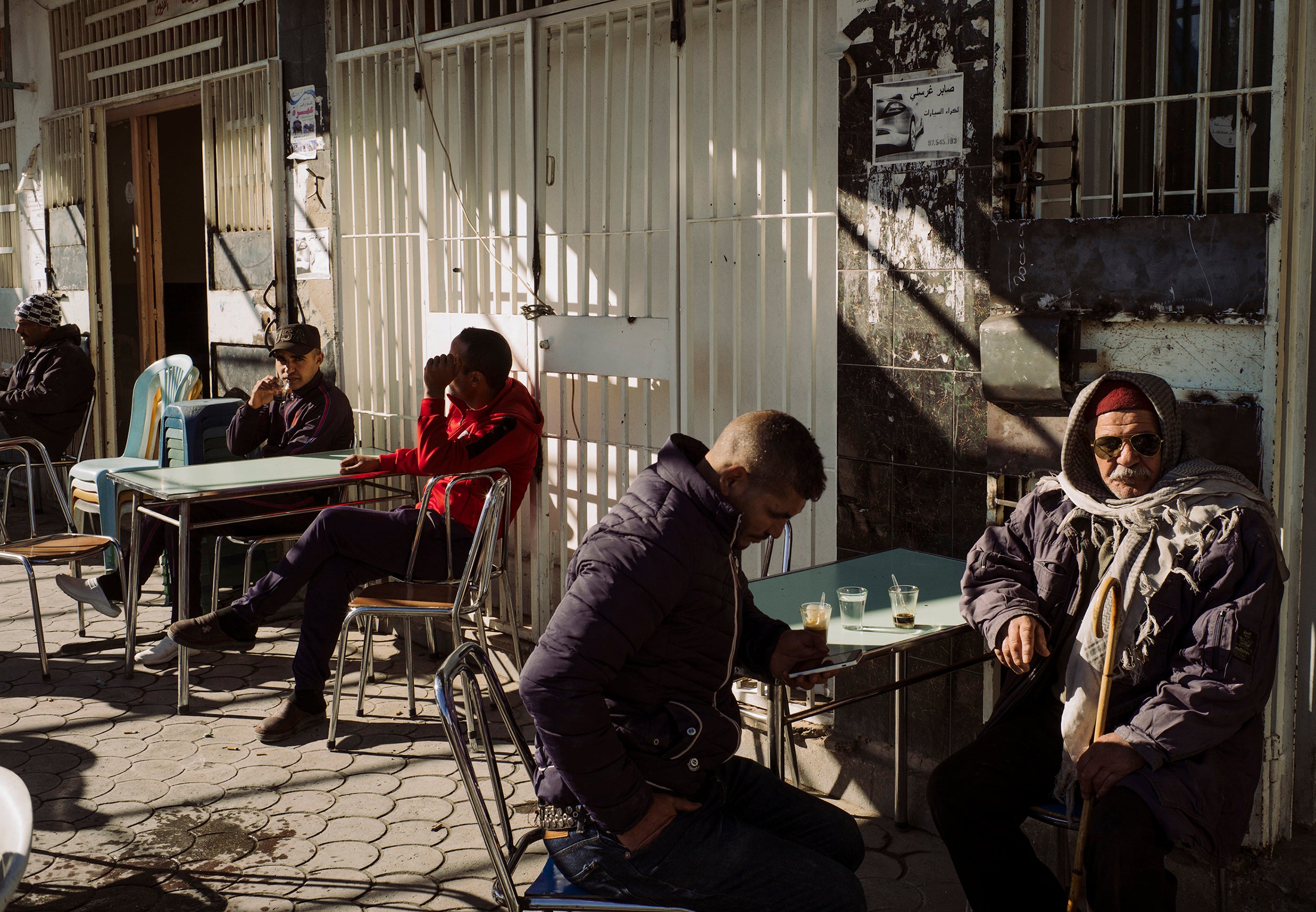
In villages and towns, the forces abetting radicalisation are in full gear: ignored by successive governments, the region is beset with high unemployment, poverty and weak social services. Resentment toward the government runs deep.
On that November evening, these colluding forces led one cousin to betray another.
"Ever since my brother joined the army, our cousin wanted to kill him,” says Fadha Ghozlani, 35, who was in the house during the attack, along with their younger brother, Mohammed. “He brought the terrorists to our home."
By UN. estimates, at least 5,500 Tunisians have fought for Isis and al-Qaida in Syria, Iraq and Libya – more than from any other country. Many are from the Kasserine region.
But even as Tunisia became a militant pipeline to the wars in those countries, its secular history and drift toward the West made it a target. In 2015, Tunisian gunmen believed to have trained in Libya attacked the resort town of Sousse and the Bardo Museum in the capital, Tunis, killing scores, mostly foreign tourists.
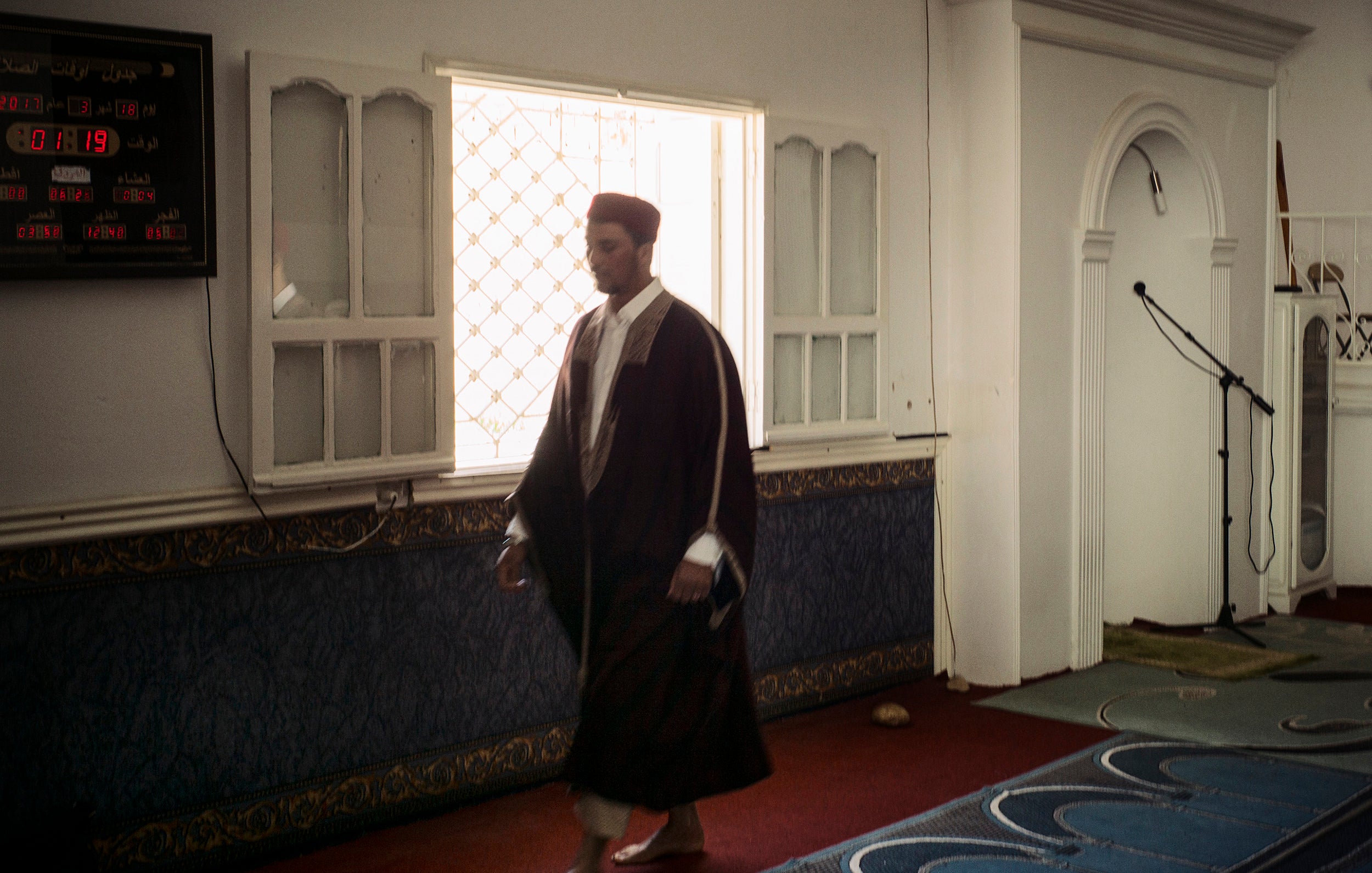
Last year, Isis fighters based in Libya brazenly battled security forces in the southern border town of Ben Guerdane, widely seen as an effort to establish a new foothold in Tunisia. That foothold seems to be taking shape in these mountains, where Isis is also in a contest with al-Qaeda in the Islamic Maghreb for recruits and territory.
Security analysts say that many fighters have defected to form the Isis’s Tunisian branch, Jund-al-Khilafah, which in Arabic means the soldiers of the caliphate.
There are no more than a couple hundred militants in the mountains, security officials say, including some from Algeria, Mauritania and West African countries. But most of the fighters are Tunisians from the area, disaffected men such as Muntasir.
By the time he joined Isis last summer, it had become harder to travel to the wars abroad. The nation is under emergency law. Men younger than 35 need written permission from their parents to leave the country. A 125-mile earthen wall was built along the border with Libya to prevent jihadis from leaving and entering.
"The security situation is improving,” says Yasser Mesbah, an interior ministry spokesman. “But we can't say the threat is over."
Consider this: 3,576 Tunisians were tried last year on terrorism-related charges, including recruitment and training, according to Interior Ministry data.
"The bigger issue, not just for Tunisia, but for all of us, is this: what about the guys who have not left the state to fight?” says Patrice Bergamini, the European Union's ambassador to Tunisia. "They are like ticking bombs."
Sayed and Muntasir grew up near each other in Thmad, a bucolic village in the mountains. Born the same year, they played together and often slept in the same room. They were both tall, lean and handsome.
Their families, like others in their once close-knit community, farmed and grazed sheep. They celebrated holidays and festivals together.
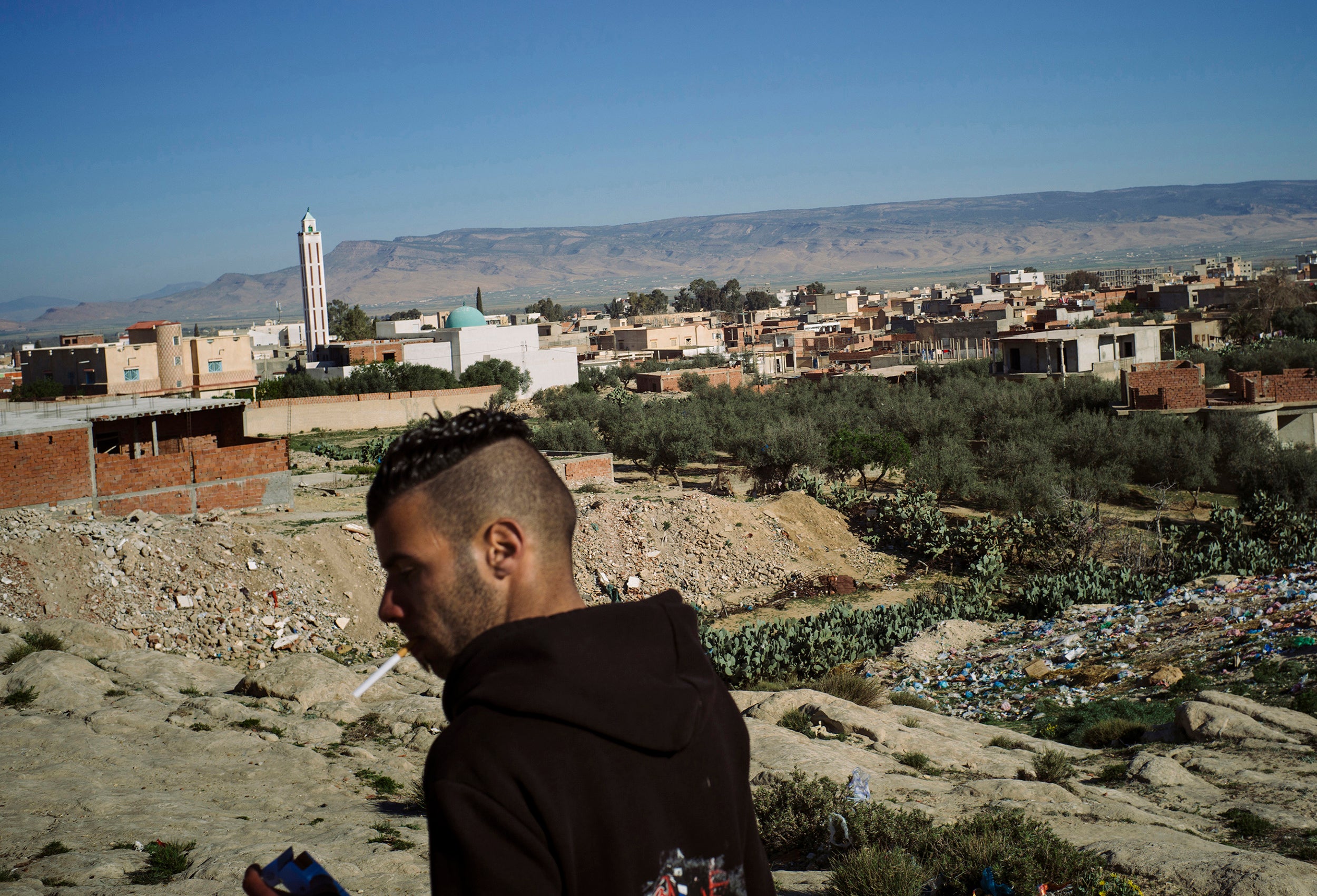
By the time the cousins turned 20, the Arab Spring uprisings were transforming Tunisia. In Kasserine, violent protests in January 2011 played a central role in the ousting of dictator Zine el-Abidine Ben Ali. Like other southern areas, it had been ignored by the country's northern elite for decades.
Neither cousin took part in the revolution. Muntasir was growing crops and tending to his family's sheep on the mountains. And by then, Sayed had joined the army to help support his parents and siblings.
But Sayed's job drove the two cousins apart. Muntasir soon viewed him as a member of Ben Ali's oppressive regime.
"When Muntasir learned that Sayed had enlisted in the army, he used to call him 'tyrant,' “ recalls Mohammed Ghozlani, 25, Sayed's younger brother. “He used to throw this word in our faces whenever he saw us in a local cafe or other places. But at that time, he didn't try to harm us."
After the revolt, a new openness flourished. But that also paved the way for religious extremists to attract youths frustrated with the lack of opportunities. In mosques and Islamic education camps, imams implored young people to give up their Western ways and urged them to defend Islam.
Mohamed Zorgui, a rapper and community youth leader, recalls that in 2013 “the black Islamic State flags were being displayed openly in the city centre."
The flags are gone, but the sense of despair lingers. The promises of economic growth that emerged after the revolution remain unfulfilled, and cafes are filled during the day with idle young men of working age.
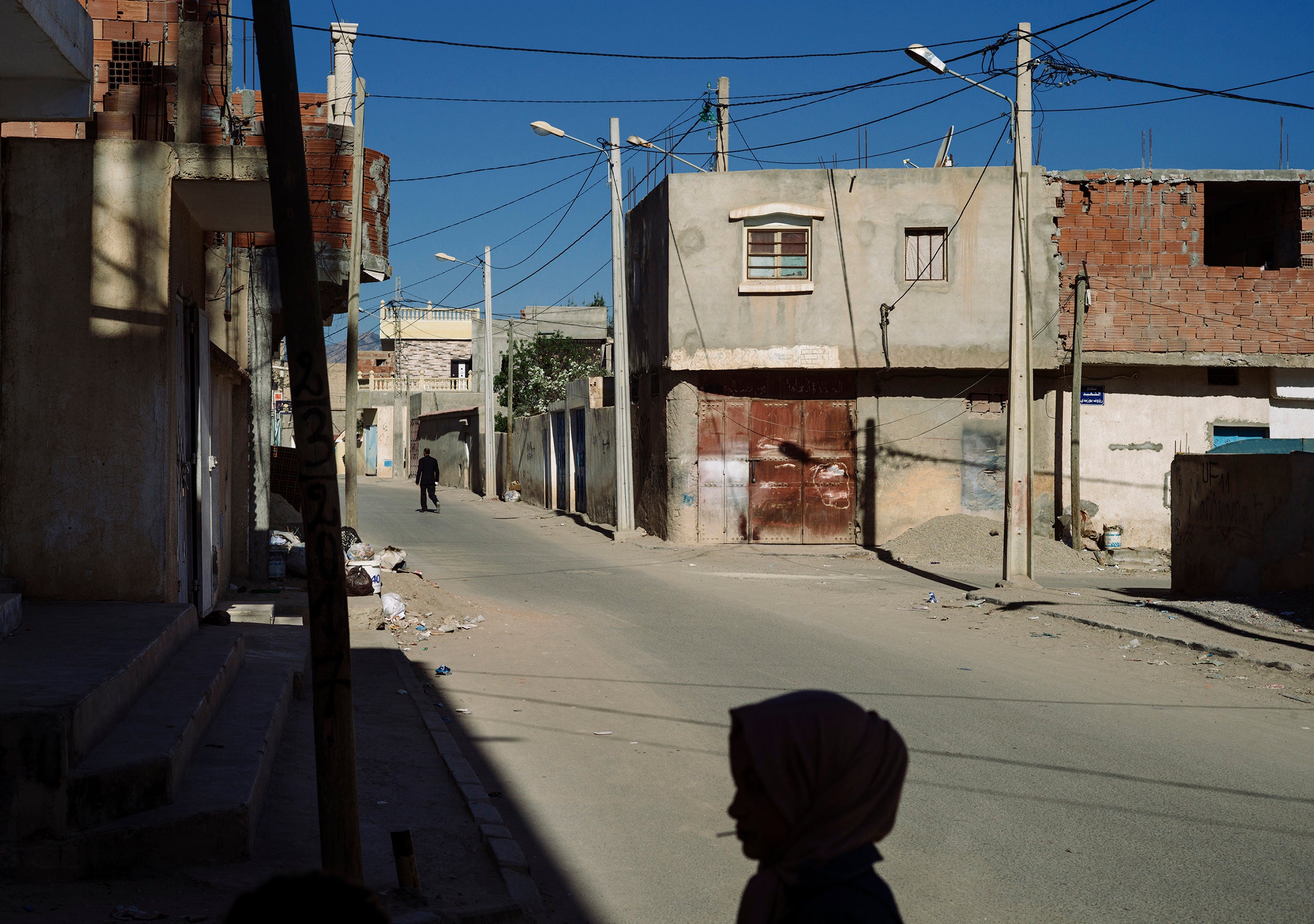
"The youth have no idea what the future will bring,” says Mahmoud Kahri, a lawmaker representing Kasserine. “And the government has found no efficient way to address their problems."
That has garnered more sympathy for the militants. In January, protests broke out in the town over the lack of jobs. Some youths burned tyres. Others branded government officials “nonbelievers” and chanted “Isis is coming,” Zorgui recalls.
In Al Karma and Al Zuhour, two hardscrabble enclaves in the town of Kasserine, dozens of families have sons who left to fight abroad or were recruited by the militants in the mountains. Scrawled on the wall of a school in Al Zuhour are the words: “Isis is lasting and expanding."
By all accounts, Muntasir was not a devout Muslim. He rarely attended mosque or prayed five times a day. But last spring, his relatives noticed that he started praying and engaging in discussions about Islam. "Muntasir used to drink alcohol, and then, one day, he suddenly started to speak about religion,” Mohammed Ghozlani recalls.
Yet Muntasir kept his sympathies to the Isis a secret, and many family members didn't realise he had joined the militancy until he had vanished into the mountains during the Muslim holy month of Ramadan last summer.
Mafoud Bin Daraie, a 40-year-old imam and community leader, says the militants have largely drawn recruits from rural young men who “have wrong impressions of Islam or are very poor".
He has tried to stop several Kasserine youth from heading overseas to fight or into the mountains. But now he himself is a target.
A few months ago, a Tunisian militant with a handgun entered Daraie's mosque during Friday prayers. But security forces were tipped off, and before he could pull the trigger, they grabbed him. "They tried to kill me because I spoke out against them,” Daraie says.
A few blocks from his mosque, a house is pocked with softball-sized holes from heavy gunfire. In August, security forces fought a nine-hour battle with militants holed up there. Two of the gunmen, along with a passerby, were killed.
One day last summer, the militants accused Najib Guasmi, 37, a shepherd, of being an informant for the security forces. "They killed him with a bullet to his head,” says his brother, Hadi.
The militants have also planted landmines, killing several civilians in recent months.
At least a dozen Tunisian fighters returning from Syria and Iraq have joined the militants, said Ridha Raddaoui, co-author of a recent report on terrorism by the Tunisian Forum for Economic and Social Rights. As more fighters return, he adds, “they will be fuel to the battle in the mountains against the Tunisian state".
At checkpoints in the towns, Tunisian security forces search vehicles for weapons and bombs. Soldiers patrol in Humvees and armoured personnel carriers. Suspected militants have been arrested and sent to jail.
But a recent visit to the mountains, under armed escort, revealed the security challenges on this vast terrain dotted with cactus and pine trees along dry riverbeds.
"There are fighters everywhere,” says a national guard commander, pointing at the mountains, a Belgian-made rifle slung over his shoulder. He is speaking on the condition of anonymity because he is not authorised to speak to journalists. “But we don't have the necessary means and equipment to fight them."
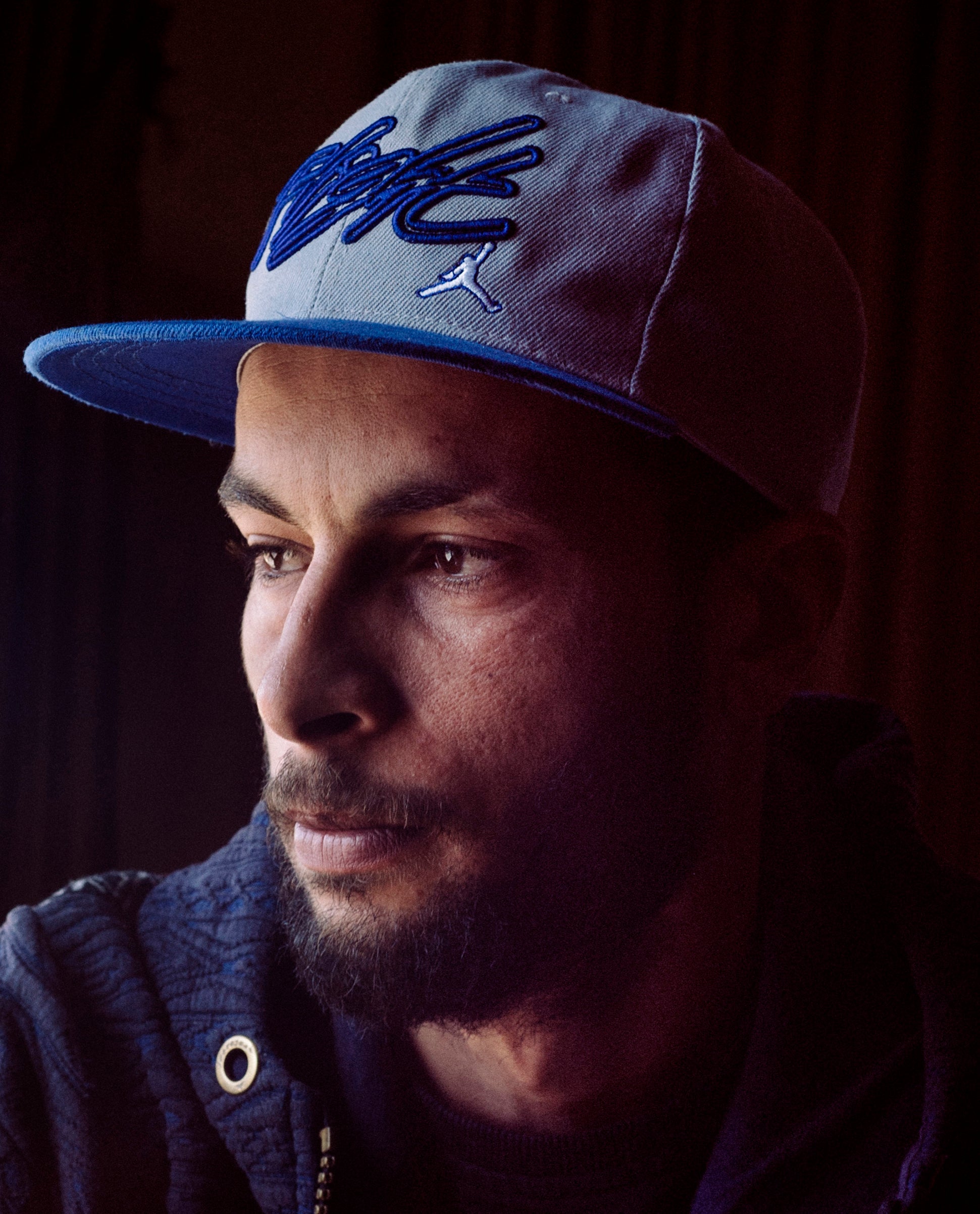
The security forces, he says, are stretched thin and lack equipment to track down the militants. "God is the only one protecting us now,” he says.
On that November evening, Muntasir was determined to confront his cousin. By then, he was routinely coming down from the mountains to pick up food and supplies. Nearly half the village was helping the militants. The other half lived in fear.
Sayed, too, was coming home – despite the omens. On one visit, a cousin told him that if he had a gun he would kill him on the spot.
"I told my brother, 'Don't come to the house. Muntasir is watching you,' “ Fadha Ghozlani recalls.
But Sayed was close to his mother, and she needed money.
As Sayed glared at Muntasir in their house, his mother began to cry. She begged Muntasir not to harm her son.
But the militants hauled Sayed into a guest room. Muntasir joined them. Moments later, two bullets pierced the back of Sayed's head.
© Washington Post
Join our commenting forum
Join thought-provoking conversations, follow other Independent readers and see their replies
Comments